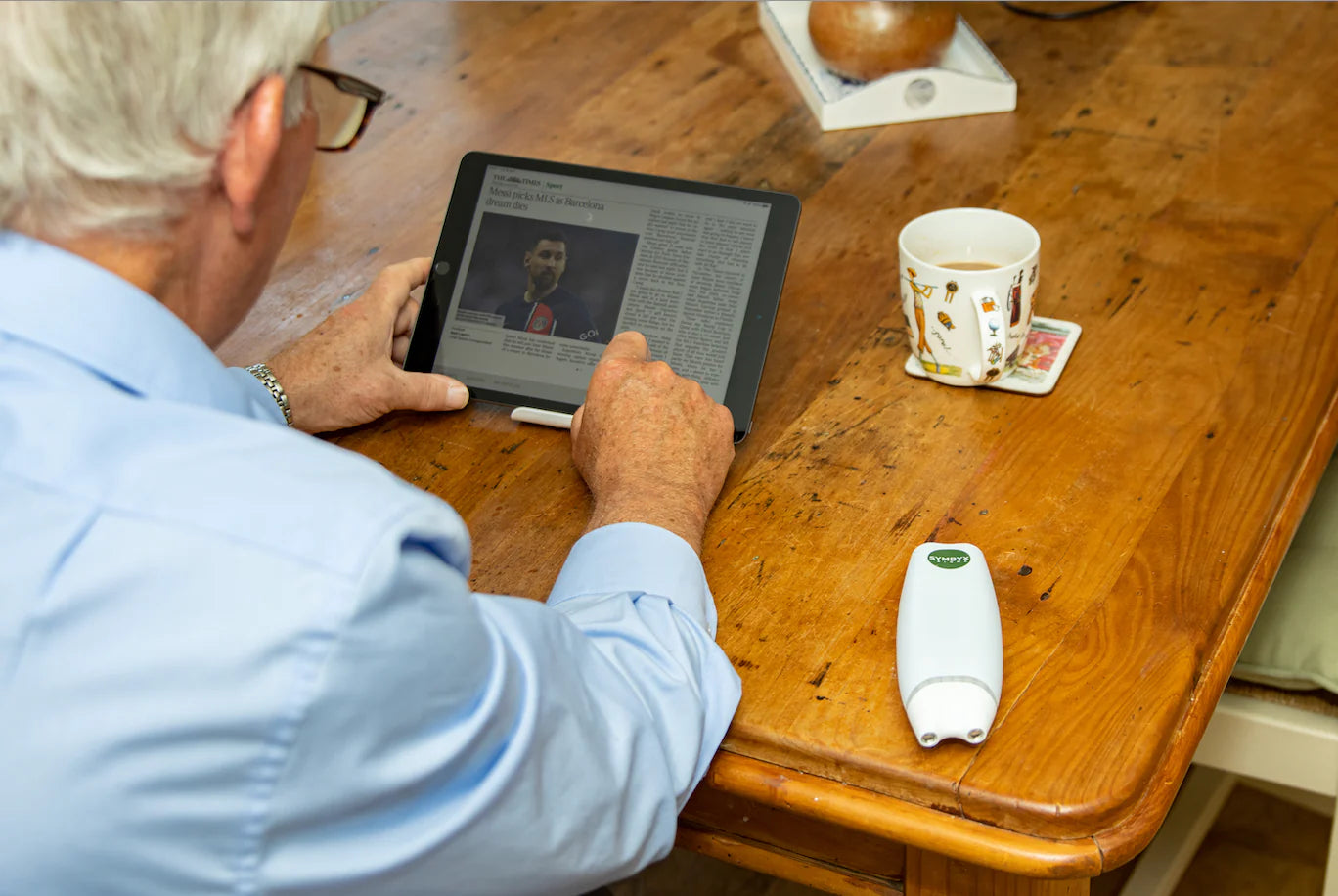SYMBYX is a fast-growing med-tech company founded in Sydney in 2020. This month (July 2021), it welcomed the publication of key research from its 2019-2020 Adelaide clinical trial in the UK’s prestigious BMC Neurology Journal. Parkinson’s South Australia (PSA) partially funded the trial.
The journal published the results of a 52-week trial involving two groups of patients that showed both statistical and clinical improvements across a wide range of motor and non-motor skills. The study involved the use of light therapy, known as photobiomodulation (PBM or light therapy), which is sold by SYMBYX to treat a range of neurodegenerative conditions, among which Parkinson’s disease is the initial priority. The results, published on 2 July 2021 by BMC found that measures of patent mobility, cognition, dynamic balance and fine motor skill were significantly improved with PBM treatment for 12 weeks and up to one year.
“Many individual improvements were above the minimal clinically important difference, the threshold judged to be meaningful for participants,” the research stated. “Individual improvements varied but many continued for up to one year with sustained home treatment. No side effects of the treatment were observed.”
The journal also noted that: “PBM was shown to be a safe and potentially effective treatment for a range of clinical signs and symptoms of PD. Improvements were maintained for as long as treatment continued, for up to one year in a neurodegenerative disease where decline is typically expected.
Results from a separate PBM trial using SYMBYX technology (and run in Sydney just after the Adelaide trial) are expected to be published imminently in a different peer reviewed journal and will add to the growing and promising body of research in this area.
Whether it sounds perhaps too simple or overwhelmingly complex, PBM therapy is not at all a new area of medicine. In fact, the Nobel Prize was won in 1903 by a Danish Physician for work proving the positive impact of ultraviolet blue and red light on smallpox and TB. And today there are more than 5,000 peer-reviewed studies reporting on its safe, protective and restorative properties for a number of health problems. The following chart outlines the progression in health applications for PBM therapy.

Dr Markman, SYMBYX CEO, said “the Adelaide PBM trial showed the treatment to be side-effect free, low cost and potentially clinically effective, with significant improvements in primary and secondary outcome measures. This is early stage but very promising testing which provides a clear impetus for additional higher-level trials. Australia boasts some incredible innovative scientists who are utilising PBM across multiple neurodegenerative disorders and Parkinson’s is just the beginning. What sets SYMBYX apart simply from other technologies out there claiming effectiveness in this area is that our technology is premised on changing the human microbiome (the vast microbial colonies of bacterial and other gut species that play a vital role in mediating human health outcomes). Our smart scientists cracked this code through copious numbers of mouse experiments”.
Put simply, in non-scientific terms, SYMBYX devices use non-thermal (heating) laser light directed to the patient’s gut to promote increased dopamine production. “What most people don’t know is that about half of our dopamine actually comes from the gut. The largely underestimated (until now) enteric nervous system, which resides in the colon, has a direct and critical linkage to the brain (which together with the spinal cord form the central nervous nervous system). Using SYMBYX hand-held lasers and treatment protocols, patients are able to stimulate their gut biome to take over and do some of the heavy lifting, in terms of dopamine manufacturing”, Dr Markman said.
The products and therapies do not interfere with any existing Parkinson’s medications and are advised to be used ~3 times a week for ~20 minutes a session. The PDCare Laser by SYMBYX emits 904 nanometers of invisible infrared light and is cold so can’t be felt by the patient as it’s applied to clean, dry skin. Although the laser is portable (and therefore easy to use at home), SYMBYX doesn’t recommend changes to a patient’s existing care regime and stresses the importance of maintaining an exercise routine, healthy eating and always first consulting with a medical practitioner before commencing any new therapy.
So, SYMBYX is focused on two breakthrough or new frontiers – using innovative laser and light devices to reduce Parkinson’s symptoms – and understanding the role of the gut microbiome in Parkinson’s and other disease models including Alzheimer’s, autism and IBS.

